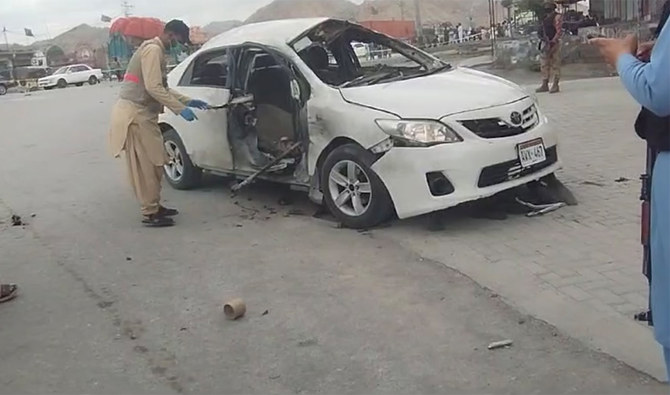TORKHAM: The barren desert plain among the mountains of eastern Afghanistan is filled with hundreds of thousands of people.
Some live in tents. Others live out in the open, among the piles of the few belongings they managed to take as they were forced from neighboring Pakistan.
The sprawling camp of people returning to Afghanistan through the Torkham border crossing is the latest facet of Afghans’ long, painful search for a stable home.
More than 40 years of war, violence and poverty in Afghanistan have created one of the world’s most uprooted populations. Some 6 million Afghans are refugees outside the country.
Another 3.5 million people are displaced within the country of 40 million, driven from their homes by war, earthquakes, drought, or resources that are being depleted.
Over the course of months, an Associated Press photographer traveled across Afghanistan from its eastern border with Pakistan to its western border with Iran, getting to know displaced people and returned refuges and capturing their images.

An Afghan refugee rests in the desert next to a camp near the Pakistan-Afghanistan border in Torkham, Afghanistan, Friday, Nov. 17, 2023. (AP/File)
Afghanistan is already a poor country, especially after the economic collapse that followed the takeover by the Taliban two years ago. More than 28 million people — two-thirds of the population — rely on international aid to survive.
The displaced are among the poorest of the poor. Many live in camps around the country, unable to afford enough food or firewood for heat in the winter. Women and children often turn to begging. Others marry off their young daughters to families willing to pay them money.
In a camp for internally displaced people outside Kabul, it was 15-year-old Shamila’s wedding day. She stood in a bright red dress among the family’s women, who congratulated her. But the girl was miserable.
“I have no choice. If I don’t accept, my family will be hurt,” said Shamila, whose father did not give the family’s name because he feared being identified by the Taliban. Her groom’s family is giving her father money to pay off the debts he’s had to take on to support his wife and children.

An Afghan refugee girl stands for a portrait in a camp near the Pakistan-Afghanistan border, in Torkham, Afghanistan, Saturday, Nov. 4, 2023. (AP/File)
“I wanted to study and work, I should have gone to school,” Shamila said. “I have to forget all my dreams … so at least I can help my father and my family a little and maybe I can take the burden off their shoulders.”
Pakistan’s decision earlier this year to deport Afghans who entered illegally struck hard. Many Afghans have lived for decades in Pakistan, driven there by successive wars at home.
When the order was announced, hundreds of thousands feared arrest and fled back to Afghanistan. Often Pakistani authorities prevented them from taking anything with them, they say.
Their first stop has been the camp in Torkham, where they might spend days or weeks before Taliban officials send them to a camp elsewhere. With little food and little to protect them from the mountain cold, many in the camp are sick.
In one corner of the camp at the foot of a mountain, 55-year-old Farooq Sadiq sat among some of his belongings, wrapped in cloth, with his wife and children on the ground beside them. Sadiq said he had been living in the Pakistani city of Peshawar for 30 years and owned a home there. Now they had nothing, not even a tent, and had been sleeping on the ground for the past eight nights.

An Afghan refugee woman returns to Afghanistan through the Pakistan-Afghanistan border in Torkham, Afghanistan, Friday, Nov. 3, 2023.(AP/File)
“I have nothing in Afghanistan, no house, no place to live, not enough money to buy a house,” he said. He hopes to settle somewhere in Afghanistan and get a visa to Pakistan so he can go sell his home there to use the money for his family.
The expulsions from Pakistan have swelled the already large numbers of Afghans who are trying to migrate into Iran, hoping to find work.
Every month, thousands cross into Iran at the border near Zaranj. It’s a risky route: In the dark of night, with the help of smugglers, they clamber over the border wall using ladders and jump down the other side.
Mostly young men, from 12 to their 20s, use this route, planning to work in Iran and send money home to their families. Many are caught by Iranian border guards and sent back.
The other way is longer — a drive by car for hours to Afghanistan’s southwest border, where they cross into Pakistan to make their way to its border with Iran, passing through mountains and deserts.
















